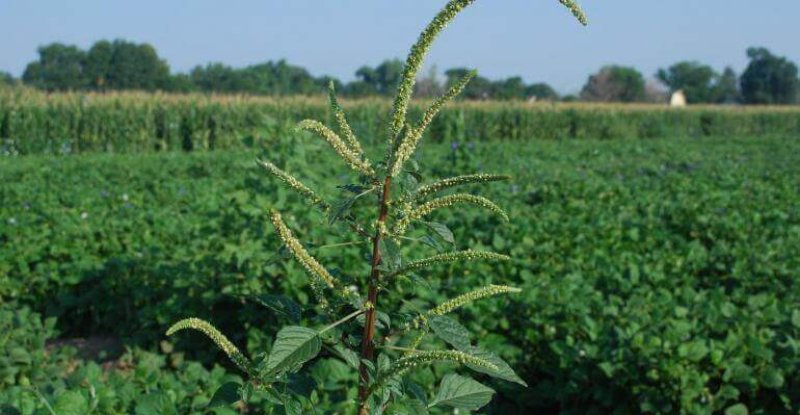Just hearing “pigweed” can cause fear in cotton and soybean farmers, but a Clemson University geneticist and others believe they have discovered the armor this dreaded weed uses to protect itself against the herbicide glyphosate.
The researchers have determined a specific genetic feature, the extrachromosomal circular DNA (eccDNA) replicon, gives pigweed, or Palmer amaranth, its resistance to glyphosate and makes this weed difficult to control.
This discovery could help refine herbicide treatment strategies and combat the rise of resistant weeds, said Clemson geneticist Chris Saski.
“The DNA structure of the eccDNA replicon is sophisticated,” said Saski, an associate professor of systems genomics in Clemson’s Plant and Environmental Sciences Department. “This circular molecule contains functional genes intermixed among complicated repetitive DNA that seemed to have originated from different chromosomes ….”
…
[T]he researchers found pigweed DNA in resistant plants had drastically changed to form a very large, self-replicating circular DNA in addition to its normal chromosomes that carried the gene for the protein that glyphosate attacked.“What this means is plants like pigweed that contain the eccDNA are able to survive and propagate where glyphosate is used frequently,” Saski said, adding that glyphosate stress might contribute and influence eccDNA formation and activity.































